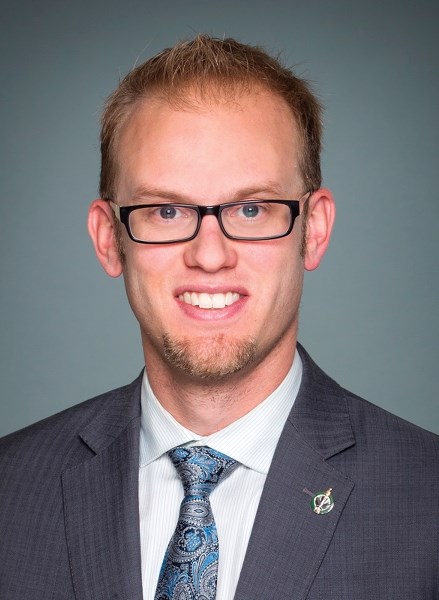Peace River-Westlock MP Arnold Viersen says a report released by a joint inter-party committee on physician-assisted dying (PAD) may lead to unnecessary loss of life.
Viersen has even gone so far as to call the results of the report, its language, terminology and lack of restrictions for vulnerable groups, such as the mentally ill and underage patients “disturbing.”
“If this law can be abused so that one person who doesn’t properly consent to dying dies, there’s a problem,” Viersen said.
The report makes several recommendations, and may open the door for PAD access to patients suffering from non-terminal conditions, such as mental illness.
It also recommends creating a two-tier permission system that may give “competent minors” access to the controversial and fatal course of treatment.
The joint committee was commissioned after a precedent-setting 2015 Supreme Court case that ruled denying PAD to a woman with degenerative spinal stenosis unconstitutional.
Viersen says the court decision goes too far by forcing parliamentarians to create legislation that may violate conservative notions concerning the sanctity of life.
“The whole issue comes down to the right to life, essentially,” Viersen said.
“We’ve crossed a line in Canadian society with the Carter Case. To be clear, the Supreme Court of Canada has crossed this line. It’s not coming from Parliament.
“We’ve gone from an objective view that human life is to be valued and maintained, to now a more subjective view that human life is to be maintained unless the person chooses to end their life.”
He also worries about the ramifications of what might happen if government is unwilling to reinforce restrictions around consent as it relates to state of mind.
“I find it concerning to see what kind of society is going to come out of this new law that places a more subjective view of life,” he said.
Viersen acknowledge that, although the spirit of the Carter Case is meant to protect personal freedoms and choice, legislation derived from the report may also force physicians to perform PADs against their will, a violation of their own individual rights.
“None of us lives in isolation,” Viersen said.
“While I do appreciate the individual responsibility and the individual right, these decisions have a greater impact within the broader community, and specifically with the doctors that are going to be asked to perform this.
“If the government is going to force this, it’s downright totalitarian.”
Viersen has more than legislative experience with PADs. His own great-uncle made the decision to end his own life late last year.
Though the procedure was legal in the Netherlands, where it was performed, Viersen says he still feels shocked by the decision, casting doubts on his own willingness to allow similar procedures in Canada.
“It definitely biases me against euthanasia. It speaks to how do we value the seniors in our community,” Viersen said, pointing to the speed with which the procedure was taken as just one way lax PAD laws might have a negative impact.
“[My great-uncle] talked to my grandfather on a Tuesday and then on a Thursday he was euthanized. We thought at least we’d have a discussion about it,” Viersen said.
“It was just all of a sudden, boom.”



